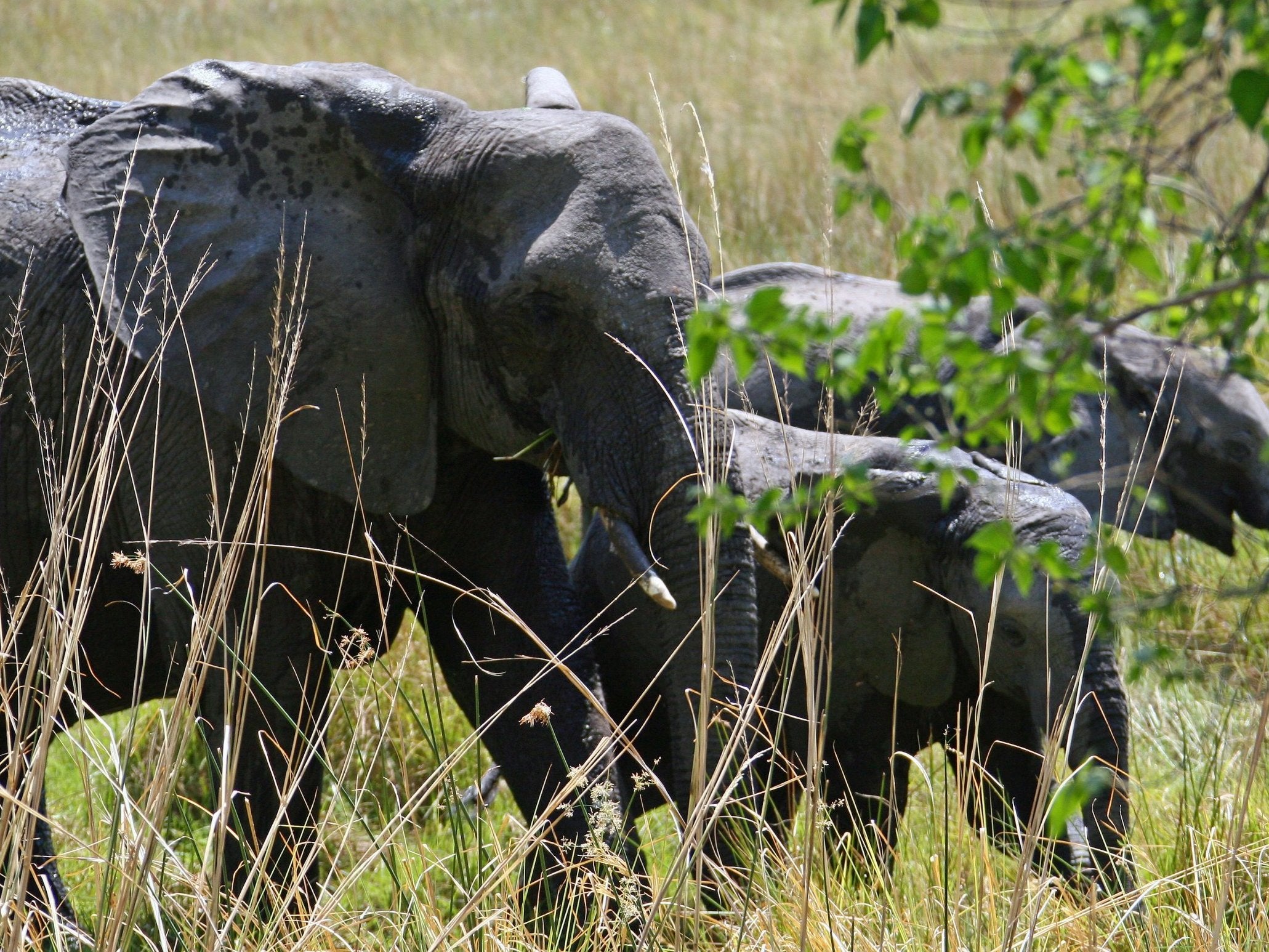Botswana lifts elephant hunting ban
Government may impose ‘regular but limited culling’ after animals and humans clash

Your support helps us to tell the story
From reproductive rights to climate change to Big Tech, The Independent is on the ground when the story is developing. Whether it's investigating the financials of Elon Musk's pro-Trump PAC or producing our latest documentary, 'The A Word', which shines a light on the American women fighting for reproductive rights, we know how important it is to parse out the facts from the messaging.
At such a critical moment in US history, we need reporters on the ground. Your donation allows us to keep sending journalists to speak to both sides of the story.
The Independent is trusted by Americans across the entire political spectrum. And unlike many other quality news outlets, we choose not to lock Americans out of our reporting and analysis with paywalls. We believe quality journalism should be available to everyone, paid for by those who can afford it.
Your support makes all the difference.Botswana has lifted its ban on big game hunting, with officials blaming a rise in “human-elephant conflict” for the decision.
The southern African nation is home to almost a third of the continent’s elephant population.
Big game hunting has been banned in Botswana since 2014 but some lawmakers say the rising elephant population has caused problems for small-scale farmers and rural villages.
The initial ban was imposed by Ian Khama, Botswana’s former president, after surveys showed a declining wildlife population.
Conservationists estimate the country is home to 130,000 elephants but some politicians claim the number is much higher.
“Predators appear to have increased and were causing a lot of damage as they kill livestock in large numbers,” an environment ministry spokesperson said.
“There is a negative impact of the hunting suspension on livelihoods, particularly for community based organisations that were previously benefiting from consumptive utilisation [of wildlife].”
Mokgweetsi Masisi, Botswana’s president, set up a committee in June 2018 to re-consider the hunting ban.
The panel recommended “a legal framework that will enable the growth of a safari hunting industry and manage the country’s elephant population within the historic range”.
It also concluded that Botswana should impose “regular but limited” elephant culling.
Critics of the decision say the country’s tourism, one of its biggest economic sectors, has grown as a result of the ban and that reversing the legislation will damage Botswana’s international reputation for conservation.
Botswana, a country the size of France, has a population of around 2.3m people and its remote wilderness is a draw for foreign tourists who want to view wildlife.
“The Ministry would like to reiterate that it will work with all stakeholders to ensure that re-instatement of hunting is done in an orderly and ethical manner,” an environment ministry spokesperson said.
The spokesperson added that the return of hunting would take place in accordance with laws governing wildlife conservation, hunting and licensing.
Additional reporting by agencies
Join our commenting forum
Join thought-provoking conversations, follow other Independent readers and see their replies
Comments